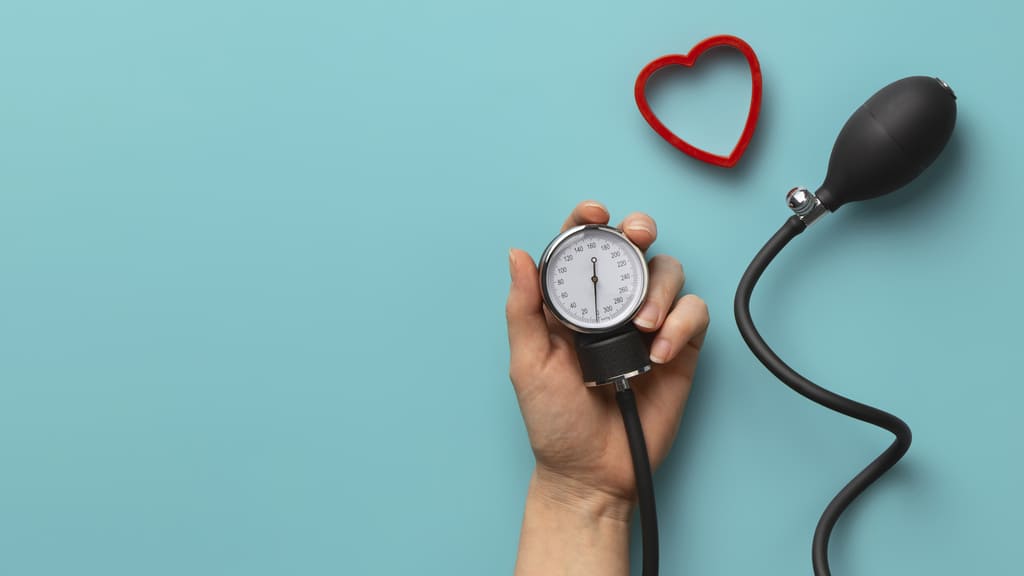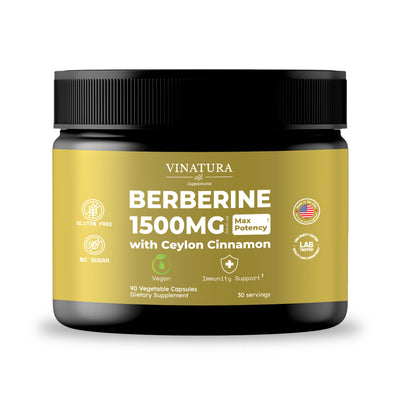
Does Nattokinase Lower Blood Pressure? Benefits & Dosage
Nattokinase, a natural enzyme soybeans produce during fermentation, has been increasingly used as a food supplement. Its popularity is primarily due to its potential for aiding numerous health conditions such as high blood pressure. Many people are turning to this natural remedy instead of relying solely on prescription medication. In this article, we will answer the question “Does Nattokinase lower blood pressure?” by exploring its benefits and dosage recommendations of nattokinase for lowering blood pressure.
Before exploring further, please read the disclaimer located at the end of this webpage.
Does Nattokinase Lower Blood Pressure?
Nattokinase has been observed in some studies to help lower blood pressure. The mechanism of action is thought to involve the breakdown of fibrin, a protein that can contribute to the formation of blood clots and the accumulation of plaque in arteries. Some experts also suggest that nattokinase may help improve blood flow, which can contribute to its potential blood pressure-lowering effect.

So, what exactly does science say about this nattokinase blood pressure benefit, and how does it work to lower blood pressure? Let's explore some studies and research about the benefits of Nattokinase blood pressure that we collect.
The study conducted by Ji Young Kim and colleagues, titled "Effects of Nattokinase on Blood Pressure: A Randomized, Controlled Trial," examined the effects of Nattokinase on blood pressure in 86 participants with systolic blood pressure ranging from 130 to 159 mmHg. The participants were administered a dose of 2000 FU per Nattokinase tablet.
The study's results revealed that the supplementation of Nattokinase led to a reduction in systolic and diastolic blood pressure after 8 weeks [1]. Although the exact mechanism by which Nattokinase lowers blood pressure in this study is unclear [1], the research also suggested that Nattokinase's ACE inhibitory effects might play a role. Additionally, other studies have reported that Nattokinase inhibits intimal thickening and enhances blood vessel elasticity while also exhibiting anticoagulant properties [1].
Another study on a group of North American participants with genetic predisposition, dietary factors, and lifestyle contributing to high blood pressure observed favorable outcomes associated with Nattokinase. These outcomes were not only related to nattokinase hypertension benefits but also linked to von Willebrand factor, a marker of cardiovascular risk [2].
This study found gender-specific effects of Nattokinase on blood pressure. It was more effective in reducing blood pressure in males, while in females, Nattokinase was believed to reduce von Willebrand factor [2]. The study used a dose of 100 mg of Nattokinase daily for an 8-week treatment period.
The study elaborated on two pathways through which Nattokinase affects blood pressure. The first pathway mentioned is that Nattokinase directly digests cross-linked fibrin at a concentration of 0.02 mg/mL, thereby extending the blood serum's clotting time.
The second pathway operates in parallel with fibrinogen degradation (a factor responsible for blood clot formation) through direct cleavage in the blood serum. Maintaining its protease activity by Nattokinase can reduce blood viscosity by separating blood serum fibrinogen [2].
An overall assessment of Nattokinase's benefits also acknowledged its positive effects on high blood pressure. Furthermore, the study addressed its potential impacts on managing Alzheimer's disease and macular degeneration.

The mechanism by which Nattokinase influences high blood pressure involves the direct dissolution of fibrin, as well as an increase in the release of tissue plasminogen activator to break down fibrin [3].
In conclusion, the current body of research suggests that Nattokinase offers potential benefits for blood pressure reduction, primarily through its effects on fibrin and blood clot formation. Despite the promising findings, further research is necessary to fully understand its mechanisms and confirm its efficacy and safety for long-term use.
Nattokinase Dosage For High Blood Pressure
The effectiveness of Nattokinase on blood pressure depends on how much nattokinase for high blood pressure is used[3]. However, the studies discussed above have used doses of 100 mg (2000 FU) per day for 8 weeks.
Besides, Nattokinase may interact with certain medications, such as blood thinners or high blood pressure medications.
If you are considering using Nattokinase as a supplement for high blood pressure management, it is essential to consult with your doctor first. They can help determine the most suitable dosage for your needs and monitor its effects on your blood pressure levels.
How To Take Nattokinase For Lower Blood Pressure?
Nattokinase can be found in supplement forms and certain foods, such as natto, a traditional Japanese dish from fermented soybeans. Supplements come in diverse formats, such as capsules, tablets, and powders. When choosing Nattokinase supplements, be sure to adhere to the instructions provided on the label and follow the recommended dosage.

Typically, it is advised to take Nattokinase with food to enhance absorption and minimize potential gastrointestinal side effects. Generally, it is recommended to take Nattokinase on an empty stomach, preferably in the morning or before bedtime.
This allows for optimal absorption of the enzyme. However, some individuals may experience stomach discomfort when taken on an empty stomach. In such cases, it can be consumed with a light meal.
There are a few considerations to bear in mind when taking Nattokinase. Suppose you are taking blood-thinning medication like warfarin or have a bleeding disorder. In that case, it is essential to consult your doctor before using Nattokinase, as it may increase the risk of bleeding. Additionally, pregnant or breastfeeding women should avoid Nattokinase supplementation due to limited research on its safety in these groups [5].
Read more: Is Nattokinase a Blood Thinner? Can It Replace Blood Thinners?
Conclusion
Taking Nattokinase may contribute to lowering blood pressure by benefiting fibrin and blood clot formation. To effectively manage high blood pressure, alongside Nattokinase, it is crucial to monitor blood pressure levels and implement healthy lifestyle changes like maintaining a nutritious diet and regular exercise. So, there is a positive sign for the answer to the question, "Does Nattokinase lower blood pressure?" Nattokinase can lower blood pressure and plays a significant role in managing hypertension.
Frequently Asked Questions
What Are The Adverse Effects Associated With Nattokinase?
Nattokinase is generally considered safe for consumption, but some individuals may experience mild side effects such as gastrointestinal discomfort, bloating, or diarrhea. There may also be an increased risk of bleeding, especially in individuals taking blood-thinning medication.
Does Nattokinase Have The Ability To Clear Arterial Plaque?
There's preliminary evidence suggesting that Nattokinase may help reduce arterial plaque. Its fibrinolytic activity could help break down the blood clots forming part of the plaque.
Is It Recommended To Take Nattokinase In The Morning Or Evening?
The timing for taking Nattokinase is not strictly defined and depends on personal preferences and individual health conditions. However, it is generally suggested to take Nattokinase either in the morning or before bedtime, which is the best time to take Nattokinase and preferably on an empty stomach, for optimal absorption.
Is It Safe To Combine Nattokinase With Aspirin?
Combining Nattokinase with aspirin without medical supervision is not advisable because of their blood-thinning properties. This combination may elevate the risk of bleeding. There have been reported instances of cerebral hemorrhage associated with the concurrent use of Nattokinase and aspirin, underscoring the need for caution when considering this combination [4].
Related Article:
- Benefits Of Nattokinase Supplements: Side Effects & Usage
- 7 Best Nattokinase Supplements for Cardiovascular Health
- Does Nattokinase Benefit for Skin Health?
References
- [1] Ji Young Kim, Si Nae Gum, Jean Kyung Paik, Hyo Hee Lim, Kyong Chol Kim, Ogasawara, K., Inoue, K., Park, S., Jang, Y., & Jong Ho Lee. (2008). Effects of Nattokinase on Blood Pressure: A Randomized, Controlled Trial. Hypertension Research, 31(8), 1583–1588. https://doi.org/10.1291/hypres.31.1583
- [2] Kanintra Suwanmanon, & Hsieh, P.-C. (2014). Effect of γ-aminobutyric acid and nattokinase-enriched fermented beans on the blood pressure of spontaneously hypertensive and normotensive Wistar–Kyoto rats. Journal of Food and Drug Analysis, 22(4), 485–491. https://doi.org/10.1016/j.jfda.2014.03.005
- [3] Dabbagh, F., Manica Negahdaripour, Aydin Berenjian, Abdolazim Behfar, Mohammadi, F., Zamani, M., Cambyz Irajie, & Ghasemi, Y. (2014). Nattokinase: production and application. Applied Microbiology and Biotechnology, 98(22), 9199–9206. https://doi.org/10.1007/s00253-014-6135-3
- [4] Chang, Y., Liu, J., Lai, S.-L., Wu, H.-S., & Lan, M. (2008). Cerebellar Hemorrhage Provoked by Combined Use of Nattokinase and Aspirin in a Patient with Cerebral Microbleeds. Internal Medicine, 47(5), 467–469. https://doi.org/10.2169/internalmedicine.47.0620
- [5] Ming Wai Tai, & Sweet, B. V. (2006). Nattokinase for prevention of thrombosis. American Journal of Health-System Pharmacy, 63(12), 1121–1123. https://doi.org/10.2146/ajhp050509
Author

Product Disclaimer
Including an ingredient or study does not evaluate, endorse, or recommend any Vinatura product or any third-party product. Some ingredients discussed may not be used in any Vinatura product.
The content of the articles has not been evaluated by the Food and Drug Administration (FDA) and is not intended to promote or endorse any specific product. Any products sold on this website are not intended to diagnose, treat, cure, or prevent any disease.
Opinions and Endorsements
Any claims, statements, or opinions expressed in the articles are those of the author(s) and do not necessarily reflect the views or opinions of the manufacturers of the dietary supplement products. The products sold on this website are separate from the content of the articles and are not directly endorsed or associated with the information presented here.
Liability Disclaimer
The author(s) of the articles, website, and manufacturers of the dietary supplement products do not assume any liability for any potential consequences arising from the use of the information provided in the articles. Ingredient effects, dosages, and safety vary by individual, formulation, and context; some ingredients interact with medications or may be unsuitable during pregnancy or lactation. It is recommended that individuals consult with a qualified healthcare professional before making any dietary or lifestyle changes, including the use of dietary supplements.
Product Usage
Please refer to the product labels and packaging for specific usage instructions and guidelines for the dietary supplement products sold on this website.
Customer Support
For any concerns or questions regarding the dietary supplement products, please contact our customer support team, who will be more than happy to assist you.





Leave a Comment
Be the first to comment.
What do you think?